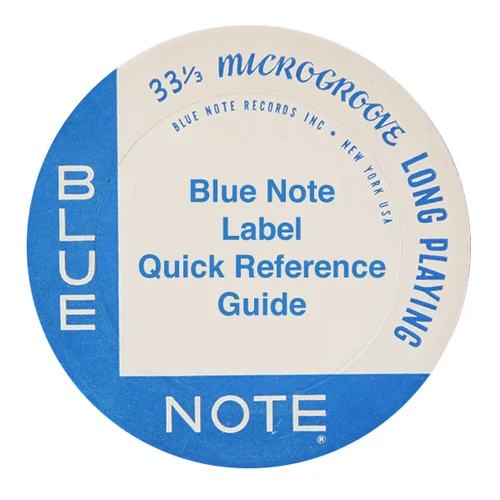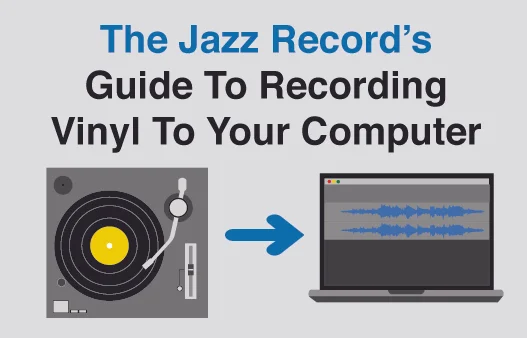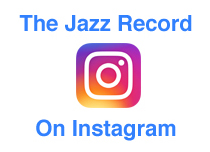Under The Influence: Fats Navarro - "Prime Source"
/Fats Navarro • Prime Source • 1975 • Blue Note Records
Recorded 1947, 1948 & 1949 in New York City
The Selections:
The Tracks:
A1. Our Delight (Alt. Master)
A2. Our Delight
A3. The Squirrel (Alt. Master)
A4. The Squirrel
A5. The Chase (Alt. Master)
A6. The Chase
A7. Dameronia (Alt. Master)
A8. Dameronia
B1. Lady Bird (Alt. Master)
B2. Lady Bird
B3. Jahbero (Alt. Master)
B4. Jahbero
B5. Symphonette (Alt. Master)
B6. Symphonette
C1. Double Talk
C2. Double Talk (Alt. Master)
C3. Boperation
C4. The Skunk (Alt. Master)
C5. 52nd Street Theme
D1. Dance Of The Infidels
D2. Dance Of The Infidels (Alt. Master)
D3. Wail
D4. Wail (Alt. Master)
D5. Bouncing With Bud (Alt. Master)
D6. Bouncing With Bud
D7. Bouncing With Bud (Alt. Master)
The Players:
The Tadd Dameron Sextet (A1 - A8)
Tadd Dameron - Piano
Fats Navarro - Trumpet
Ernie Henry - Alto Sax
Charlie Rouse - Tenor Sax
Nelson Boyd - Bass
Shadow Wilson - Drums
The Tadd Dameron Septet (B1 - B6)
Tadd Dameron - Piano
Fats Navarro - Trumpet
Wardell Gray - Tenor Sax
Allen Eager - Tenor Sax
Curly Russell - Bass
Kenny Clarke - Drums
Chino Pozo - Bongos
The McGhee/Navarro Boptet (C1 - C4)
Fats Navarro - Trumpet
Howard McGhee - Trumpet
Ernie Henry - Alto Sax
Milt Jackson - Piano & Vibes
Curly Russell - Bass
Kenny Clarke - Drums
Bud Powell's Modernists (C5, D1 - D7)
Bud Powell - Piano
Fats Navarro - Trumpet
Sonny Rollins - Tenor Sax
Tommy Potter - Bass
Roy Haynes - Drums
The Record:
Navarro Showing Them How It's Done.
While Theodore "Fats" Navarro died young, leaving us a limited body of work to appreciate, his true lasting legacy is the influence he had on the trumpeters that would come after him in the heyday of modern jazz in the 1950s and '60s. Fats directly influenced the sound and style of Clifford Brown (another legend who left us too early), who in turn heavily influenced Freddie Hubbard, Donald Byrd and Lee Morgan, three cats who are the biggest names on the trumpet (along with that guy named Miles) from jazz's golden age. It would not be incorrect to say that as far as the jazz trumpet style and sound we know and love, all roads lead back to Fats Navarro.
Most of Fats highly regarded work comes from his time working in other musician's groups, his early death in 1950 at the tender age of 26 from a mix of tuberculosis, hard living and drug addiction didn't leave him time to show what he could accomplish leading his own groups. Prime Source focuses on what is generally considered his finest period - the years 1947 to 1949 - when he worked with Tadd Dameron and Bud Powell, as well as in a group he co-led with his close friend and mentor Howard McGhee. Dameron is an extremely underrated figure in the history of jazz, most readers will know him from a single piece of work: the Mating Call album that he made with Coltrane. In fact, he was one of the most influential composers and arrangers of the bop era and, in addition to Fats, his bands at various times showcased such up and coming talents as Miles Davis, Sonny Rollins, Dexter Gordon and Wardell Gray.
The first two sides of Prime Source are devoted to Fats' time with Dameron (one a sextet, the other a septet) and even a cursory listen immediately shows why his playing became so influential. This is bop music for sure, often with blazing fast solos, but just listen to his attack on the horn and it is easy to see why the young trumpeters that followed him were so interested in sounding like him [listen to "Our Delight" above]. The Dameron groups here feature some other future talents that would later go on to make names for themselves, including a young Charlie Rouse, whose solos on these recordings are a joy to hear.. The music is vibrant and fun, and showcases young musicians stepping out of the shadows of the precise "territory bands" they had been part of and into the exciting world of improvisation. The resulting energy of the group is often electric.
The second set of music on Prime Source takes us to the McGhee/Navarro Boptet, from a set of recordings made in 1948. Howard McGhee was, along with Dizzy Gillespie and Navarro, considered to be the finest of all the bop trumpet players, and was himself a large influence on the development of Navarro's sound. He is largely a forgotten figure in modern jazz, but nonetheless an important one, due in large part to his friendship with Navarro. The music on display here is great fun, check out "Double Talk" above, with the two friends trading complex solos at the start and end of the tune (Fats goes first both times). With the addition of Milt Jackson on vibes and Kenny Clarke on the drums, we have the makings of a great sextet, one that it would have been interesting to hear record more.
Prime Source ends with the music that introduced many present-day jazz fans to Navarro: his time spent with the great Bud Powell, the music from which would eventually make it onto a 12-inch Blue Note LP as The Amazing Bud Powell, Vol 1 in 1955 (it was originally released as a 10-inch LP in 1952, collecting tracks from 78rpm releases from 1949 and 1951). When the tracks on Prime Source were recorded the group was known as Bud Powell's Modernists, and if you are unfamiliar with this groundbreaking music, you should go grab a copy right away (in 2001 Rudy Van Gelder remastered volumes 1 and 2 of The Amazing Bud Powell from scratch and released them as a single CD, it is well worth your time until you can track down a vintage copy). The quintet with Fats is incredible stuff, with a young Sonny Rollins, Roy Haynes and Tommy Potter playing alongside Powell, just listen to the classic track "Wail" above to hear the a prime example of essential bop music played at it's very finest.
The Vinyl:
Prime Source was part of the "Blue Note Re-Issue Series" released in the mid-1970s that contained either music that had never been released, or as in this case collected important music by a singular artist in one place. The vinyl is certainly not anything to write home about, it is standard issue thin vinyl characteristic of that time period. One thing to note is that Blue Note was smart enough not to re-issue the music in faux-stereo, rather leaving it all in the original mono. The sound is crisp, especially the solos, but this is a mid-'70s release of music from nearly thirty years prior on mid-grade vinyl, so keep that in mind to get an idea of the overall sound. There is no mention of which source tapes were used, and certainly nothing about any remastering of any sort. This type of jazz music wasn't exactly flying off the shelves in 1975, so it is easy to see why United Artists (who owned Blue Note during this time) wouldn't be throwing a ton of time and resources towards it's release.
All that said, it is a very enjoyable listen and for many of us it is the only way to get much of this music - at least the first three sides - on vintage vinyl. Add to that the fact that these "Blue Note Re-Issue Series" can be had at bargain basement prices even in near mint condition (I snagged this one for $8), and it's clear that if you come across a copy you should snag it. It's an essential piece of not only Blue Note and bop's history, but also an important part of what inspired the next generation of musicians (many of them on Blue Note) to become the type of musicians they would become. Prime Source is an apt title for this music, it can rightfully be viewed as a historical document, but once you get to know the music within it's one hell of fun ride as well.












